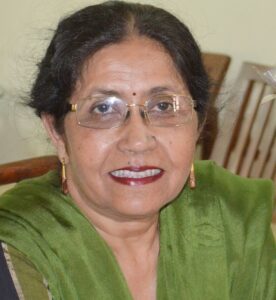
Hygiene related practices of women during menstruation are of considerable importance. In India, adolescent girls are particularly most exposed to unhygienic practices and are quite vulnerable.
While growing up, I encountered various experiences wherein my housekeeper told me that in her village, menstruation is something which is kept under the wraps and using the word periods is still forbidden because women are shy to talk about it or even visit the local gynaecologist.
I remember reading numerous articles about how young girls got so anxious when they first experienced vaginal bleeding. The insurmountable pressure of the societal taboo has been so much that they eventually had to drop out of school. An apt statistic to showcase this phenomenon is that only a shocking 36% of women in India use sanitary napkins during their menstrual cycle.
Learning about instances where visiting sacred places like temples during menstruation was considered dirty and impure, and hence women were prohibited to enter these places. I was literally left stunned when my housekeeper told me that she uses a cloth instead of a proper sanitary napkin.
She further added that owing to their lack of education and proper sanitation facilities, they use a cloth even after staying in a well-developed city for more than a decade.
Affordability is another important consideration for these poor women. This situation is worse off in slums where people hardly manage to earn two square meals a day. There is a lack of proper awareness amongst women and this is exacerbated in rural India where women are most vulnerable to contracting various diseases because of improper sanitation. Seeking proper guidance or visiting hospitals is a also daunting task for these underprivileged women.
All these factors compelled me to start my own initiative where I created a digital payment gateway in order to raise funds to procure sanitary napkins and women’s hygiene products. I collaborated with Befikr – a sanitary start-up organization and Hamari Kaksha – a nonprofit organisation which is a class apart who supported my cause in supplying sanitary napkins to the needy.
With a lot of support, I managed to collect a sum of Rs 35,000 within a week, which shows that there is a scope of great improvement in this arena. I also questioned these young women on how they tackle this stigmatized issue.
A staggeringly low proportion of women talked openly about their menstrual cycle and whether they use sanitary napkins or not. The deeply rooted taboo has left indelible marks on their vulnerable minds; making them uncomfortable to address this issue.
Even though the government has introduced various incentives and policies like the Menstrual Hygiene Scheme and the Rashtriya Kishor Swasthya Karyakram program that provides sanitary napkins for just Re 1, these women are unable to change their stereotypical mindset which is a result of years of misinformation. Leave aside tampons, the concept of a sanitary napkin seems foreign to them. These women fail to understand the deleterious impact on their health and a reproductive tract by using cloth during their periods.
However, merely distribution or providing sanitary napkins will not serve the larger purpose. These illiterate and poor women need to be educated in order to understand the importance of sanitary napkins and a hygienic reproductive health, which will go a long way towards solving this problem.
On a personal level, I aim to provide a better and healthier lifestyle to these girls with my small contribution.
Giving back to society has been an endeavour which is close to my heart and this is the perfect way to begin my journey of philanthropy.
Alongside Hamari Kaksha, we are exhilarated with such an overwhelming response to my initiative. I steadfastly aim to continue to eradicate the taboos associated with puberty and menstruation prevalent in the minds of young girls and women to appropriately address their concerns regarding health and hygiene.
The writer is a class 12th student of Carmel Convent School, Chandigarh.







Comments are closed.